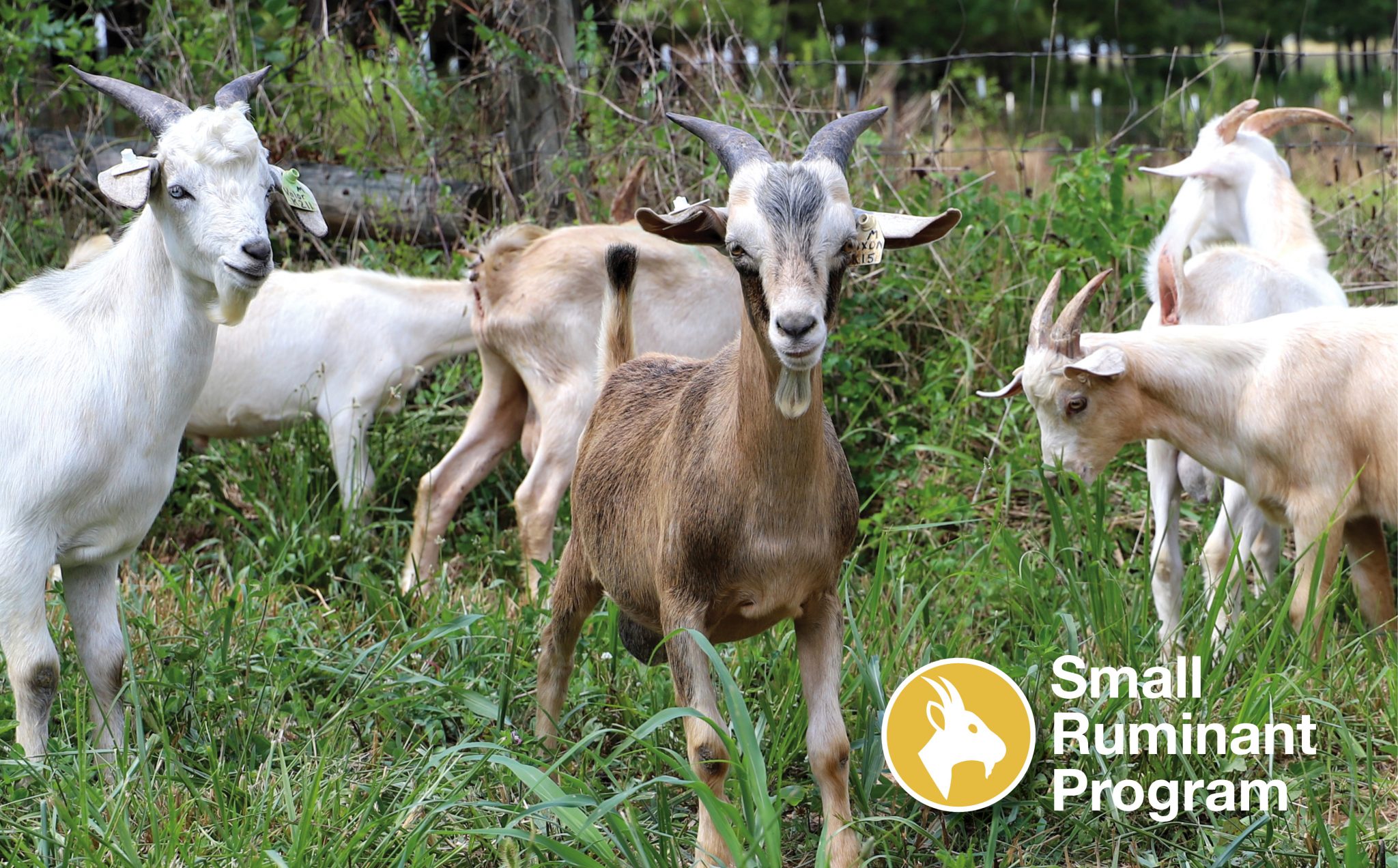Animals

The Small Ruminant Program educates landowners and small-scale producers about best management practices for raising healthy goats and sheep. The program explores sustainable methods of integrating livestock, timber production, and forage production in silvopasture systems. In addition, participants learn about the long-term effects of different grazing systems on the environment.
Study Update: Breeding for Parasite Management
Building capacity of small ruminant producers in underserved communities of the Southeastern United States
The Alabama Cooperative Extension System at Alabama A&M University (AAMU) was awarded a USDA NIFA 1890 Capacity Building Grant, No 2022-38821-37257. This project will establish an Extension and research demonstration study at AAMU’s Winfield Thomas Agricultural Research Station (WTARS). Breeding for Sustainable Control of Gastrointestinal Parasites in Meat Goats will build capacity among small ruminant producers in underserved communities in the Southeast.
Project Goals
The three-year demonstration project will run from 2022 to 2025, and the goals are to
- Establish three demonstration sites in Alabama to educate small ruminant producers—mostly from underserved communities—about integrated parasite control and breeding management.
- Introduce a new improved genetic breeding program at AAMU of Kiko and Boer goats, which will serve as sources of healthy breeding stock for meat goat producers in the Southeastern region of the United States.
- Demonstrate the benefits of using selection and breeding management as a viable method for parasite management.
- Train minority animal science students at AAMU and producers about basic techniques for parasite testing (FAMACHA, fecal egg count) and breeding management (animal selection, culling, and record-keeping).
The demonstration project will use three demonstration sites: WTARS, Union Springs in Western Alabama, and Cuba in Eastern Alabama. The Union Springs and Cuba sites will be established in the Blackbelt region of Alabama through collaboration with two farmers’ cooperatives: the Southeastern Goat Cooperative of Alabama, and the East Alabama Black Belt Farmers’ Cooperative.
The implementation of this project is being led by Alabama Extension and AAMU staff consisting of the following:
- Kimberly Sinclair Holmes, Assistant Director, Alabama Extension at AAMU
- Rudy Pacumbaba, Horticulture Specialist, Alabama Extension at AAMU
- Ernst Cebert, Associate Professor, Department of Plant and Soil Science, and WTARS Manager
Other Research
Meat Goat Demonstration Project
This project was funded by USDA NIFA. The project was developed on AAMU forestland as a collaborative project between Alabama Extension and the College of Agricultural, Life, and Natural Sciences at AAMU. The Meat Goat Demonstration Project investigated how rotational browsing and stocking rates affected the understory vegetation, soil health, and gastrointestinal parasites of goats browsing on forestland. This forestland contained a variety of invasive plants, such as Chinese privet, bush honeysuckle, kudzu, thorny olive, mimosa, tree of heaven, paulownia, and other plant species. The project also used Kiko goats to control understory plant growth.
Contact Us
State Office: Alabama A&M University
Kimberly Sinclair-Holmes, Ph.D.
Extension Assistant Director
Office Phone: (256) 372-4941

